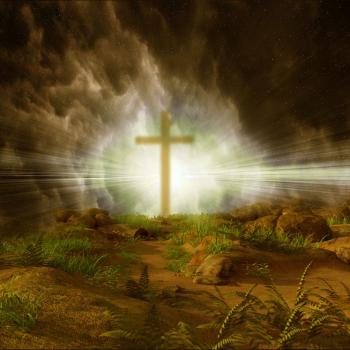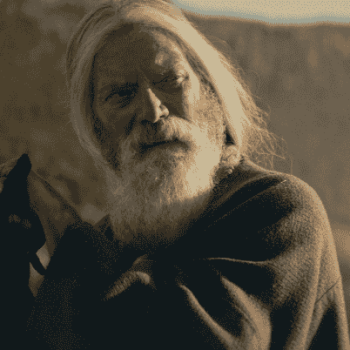 Lectionary Reflections: Year A
Lectionary Reflections: Year A
6th Sunday after Epiphany: February 13, 2011
Deuteronomy 30:15-20
The world of Deuteronomy is fraught with danger. It is so easy to read the book as a simplistic guide to health, wealth, and comfortable long life, the Hebrew Bible's own prosperity gospel. "If you follow the rules, you get all the goodies you can; if you do not, destruction is sure to come."
Is not the book of Job one long assault against such ridiculous claims? Any person who has lived for five minutes in this world knows all too well that exemplary actions do not automatically trigger wondrous rewards, while reprehensible evil does not regularly result in appropriate punishment, whether private or public. Just ask Job; he will tell you in no uncertain terms or tones. But what are we to do with such apparently obvious statements that our success is directly connected with our good or bad behaviors? Such statements may be found lacing the book of Deuteronomy, or so it seems.
The origins of the book are obscure. It is often said that the scroll discovered in the walls of the Jerusalem temple by those rebuilding the sacred place during the reign of the reforming king, Josiah, around 622 B.C.E. had some relationship to the book of Deuteronomy. After all, the scroll focused on the need for exclusive Jerusalem temple worship, to the exclusion of all other sites in the land, as well as closer attention to the details of a series of legal demands enshrined in it. This story may be read in 2 Kings 22-23:30. The discovered scroll was authenticated by a female prophet of the time, Huldah, and as a result King Josiah wept and tore his clothes upon hearing its reading and immediately began to put its demands into practice. (It should also be observed that Josiah's own life gives the lie to this simplistic notion of reward and punishment. Though his willingness to follow the demands of the scroll is supposed to lead him to be "gathered to his grave in peace," 2 Kgs. 22:20, in fact the king dies violently in a foolish attempt to confront the army of the pharaoh (2 Kgs. 23:29)!)
Some have thought the scroll was planted in the temple by Jerusalemite priests as a way to get rid of the competition, those sacred sites outside of the holy city, and thus to consolidate their priestly power in one place. Others believe that the scroll was written in the northern kingdom of Israel prior to its destruction by the Assyrians in the 8th century B.C.E. and brought to the south by reformers who wished to see a land morally pure at last, a land far better religiously than a devastated Israel, whose evil was to be seen in its blasted cities and scattered people. We probably will never know the final truth of its genesis.
But what we can do is read it on its own terms and in its own context. It is often the book of Deuteronomy that has fixed on the Hebrew Bible its designation as "law" over against the "grace" of the New Testament. After all, Deuteronomy means "second law" in Greek, a serious addendum to the older law of Sinai, most especially enshrined in the book of Exodus 20-24, the ancient Book of the Covenant. Still, it is always important to remember that the Hebrew word "torah" is not well translated by the English word "law." The Hebrew root is in fact "teaching" or "instruction," a word that includes far more than legal demands; stories, poems, and wisdom teaching as much as laws are torah.
But we have still not answered our initial question; what are we to do with this material in Deuteronomy? God's gift to Israel here, in the form of a Mosaic sermon given to the people of Israel as they await entrance into the land of promise (see Dt. 29:2f for the beginning of the sermon), is the choice between "life and death," between "prosperity and adversity" (30:15). And verse 16 appears to make that choice directly dependent on whether or not Israel follows the "commandments of God." "If you obey the commandments of YHWH your God that I am commanding you today, by loving YHWH your God, walking in God's ways, observing God's commandments, decrees, and ordinances, then you shall live and become numerous, and YHWH your God will bless you in the land that you are entering to possess." And the disasters of the wrong choice are sounded immediately in verses 17-18: "But if your heart turns away and you do not hear, but are led astray to bow down to other gods and serve them, I declare to you today that you will perish; you shall not live long in the land that you are crossing the Jordan to enter and possess." But however obvious the connection between our behaviors and God's rewards and punishments in these verses in Deuteronomy 30, I suggest that a closer look at the larger context of the verses provides another view of them entirely.





